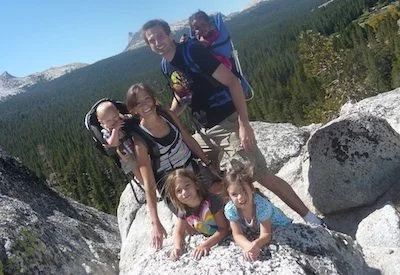Call Me a Beginner
Call me a beginner.
Having been raised in the densely populated city of Manila, I grew up with a vivid awareness of the myriad of human need, urgent and seemingly eclipsing of environmental concerns. As with triage, crises that called for immediate help rightfully take priority. I couldn’t help wondering if passionate concern for the environment might be the luxurious (and somewhat indulgent) outgrowth of a society largely unencumbered by disease, starvation, and squalor. Perhaps the sheer magnitude of the problem—including the black left in my own lungs from years of breathing in and out some of the filthiest air in the world—had me also feeling overwhelmed by the environmentalist’s task.
This is not to say that I had a disregard for God’s good earth. I would rather go for a run in sub-freezing weather any day to be out in the crisp freshness of morning than the rank warmth of the gym. And, as with most of us, my heart aches in delight at the piercing beauty of nature like nothing else.
Yet the call to actively care for our world only became particularly meaningful to me as I read Go Green, Save Green and began to observe friends embody what seemed to me a healthful and honest way of living: being green while also consciously choosing to live simply. I say honest because there seems to be a collective pat on the back in American culture to legitimize a buy, use and throw away mentality. Sex in the City’s mantra that if you want it, you should get it (after all, you deserve it and it will make you feel happy) reinforces the false notion that our choices are ours alone and affect no one else.
But hasn’t the very essence of the Green movement exposed the childishness of such a conception? Our small, everyday choices very much affect the world around us. Thus we feel significance in starting a compost pile, growing our own tomatoes or turning down the thermostat in wintertime. We are caring for the earth. If the Philippines faces the particular environmental challenge of improving air quality in its capitol city, then one of America’s unique tasks must be to address excessive consumerism and its inevitable byproduct, wastefulness.
My family may not be able to downsize our trash production by nine-tenths as the Sleeths did. But I find appealing the thought that as I free myself from the allure of ‘having,’ I genuinely participate in bettering our world.
Realizing that our daily lives could use a mild makeover in regard to environmental consciousness, my husband, Jedd, and I have begun to make small changes. I will never again, for instance, turn the flame on my stove higher than can be absorbed by the circumference of my pot. I am much more conscious about water usage, and our house temperature is farther from the perfect 72 degrees than it ever has been. We aim to recycle as best we can.
Nancy Sleeth has become a household name. If Jedd or I find a recyclable item in the regular trashcan we are quick to ‘call’ Nancy and report the incident: “Uh, Nancy? Yeah, I just found the newspaper thrown in the regular trash. Um-hmm. I know. It’s disappointing. Well, just wanted to let you know. Hopefully, this won’t happen again. Alright, bye-bye.” And with a grin, the item is gingerly picked up and tossed in the other can.
Rachel Medefind has worked in Taiwan with immigrant mail-order brides and as a counselor at crisis pregnancy centers in Sacramento and Washington, D.C. Today, Rachel lives with her husband, Jedd, in central California–nurturing her four small children, developing a new book project and aiming to complete her first triathlon this summer.


